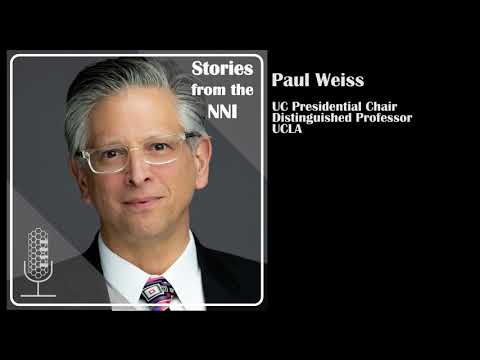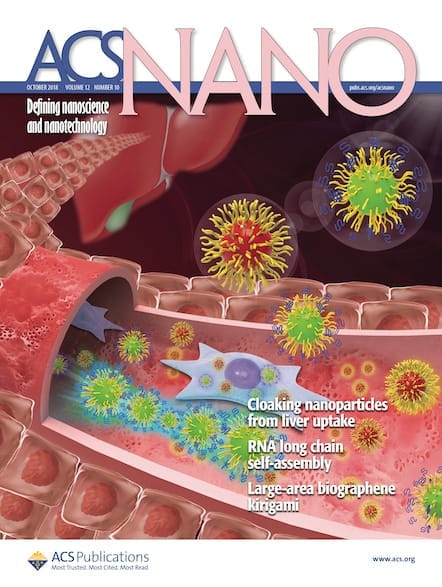ACS Nano Editor-in-Chief Paul S. Weiss was a recent guest on an episode of the National Nanotechnology Initiative’s podcast, “Stories from the NNI.” During this wide-ranging interview, he discusses topics such as nanoscience’s status as an interdisciplinary field and the opportunities and challenges that come with working at the nexus of so many different disciplines. […]

ACS Nano Editor-in-Chief Paul S. Weiss was a recent guest on an episode of the National Nanotechnology Initiative’s podcast, “Stories from the NNI.” During this wide-ranging interview, he discusses topics such as nanoscience’s status as an interdisciplinary field and the opportunities and challenges that come with working at the nexus of so many different disciplines. He shares what he’s learned about the field by editing a journal, and the potential for nonscientists to “impact the world beyond the nanoscale.” He also shares his hopes for the future of nano research, saying he’s surprised more emphasis hasn’t been placed on developing new tools than he expected and adding that the new capabilities gained through better instrumentation could be the key to being able to study more complex systems.
Of course, interdisciplinary cooperation and innovation don’t just happen by themselves. So Weiss also shares how researchers in his group find ways to challenge each other. Since his group includes people from many different backgrounds, including some with medical degrees, they regularly hold “disease of the month” group meetings where a particular disease is highlighted and serves as a focal point for interdisciplinary collaboration around a common problem. “Those are very rich discussions,” he says, “Intellectually, they expand my, and our group members and collaborators, understanding of the impact we can have on the world and how what we do can take on important problems.
Click below to listen to audio from the interview:
Weiss is the UC Presidential Chair and distinguished professor of chemistry & biochemistry and of materials science & engineering at UCLA, and the founding Editor of ACS Nano. His work focuses on the ultimate limits of miniaturization in functional molecules, assemblies, and materials, the design and control of molecular and supramolecular assemblies, extending the capabilities of scanning probe microscopies, and adding a chemical dimension to nanolithography, among other pursuits. Read his research in ACS Publications journals.
The National Nanotechnology Initiative is celebrating the 15th anniversary of its congressional authorization with a series of podcast episodes looking at the state of the industry with an expert in government, academia, or industry. The series is available on YouTube and all major podcast platforms.

